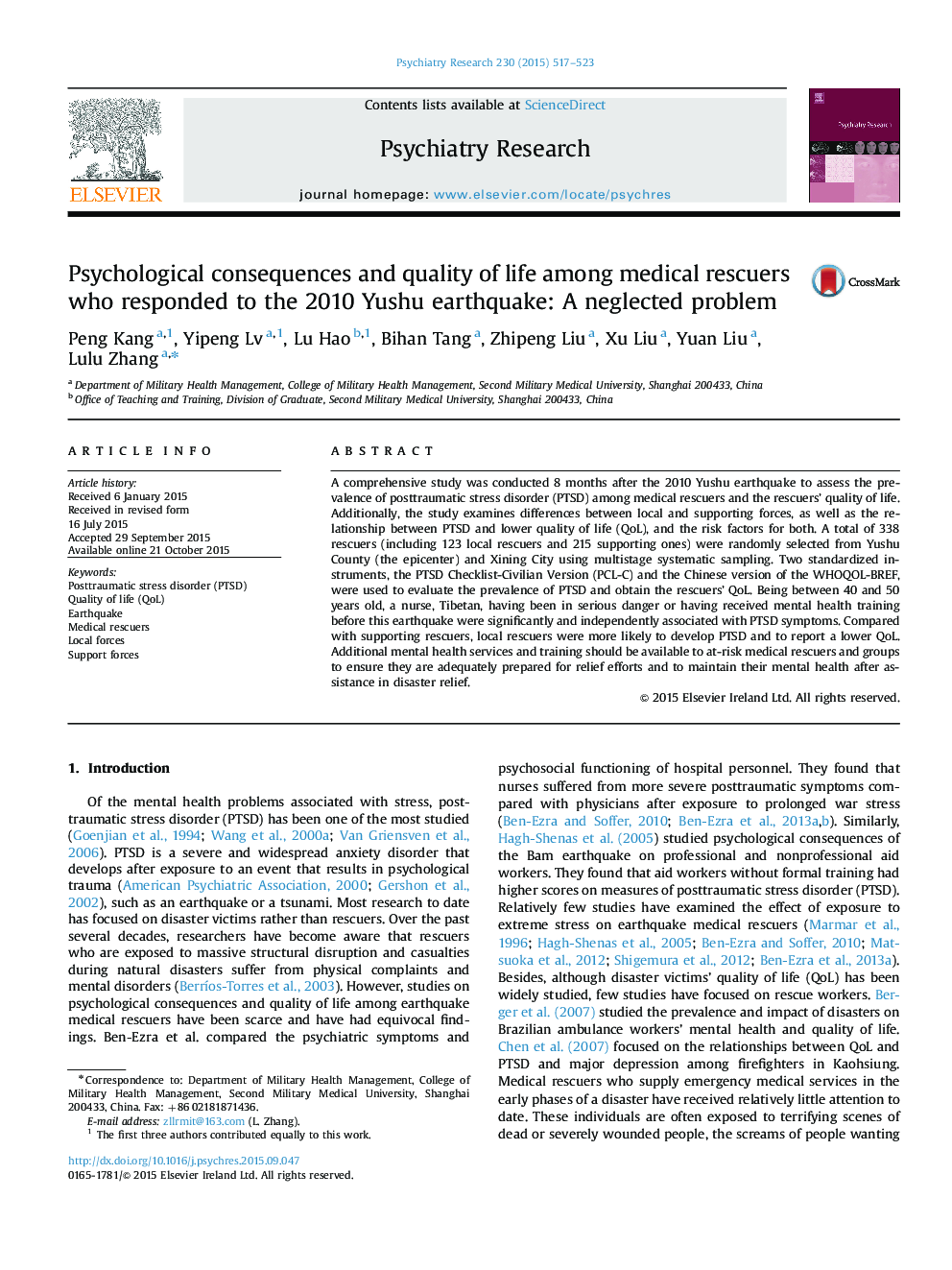| Article ID | Journal | Published Year | Pages | File Type |
|---|---|---|---|---|
| 10303622 | Psychiatry Research | 2015 | 7 Pages |
Abstract
A comprehensive study was conducted 8 months after the 2010 Yushu earthquake to assess the prevalence of posttraumatic stress disorder (PTSD) among medical rescuers and the rescuers' quality of life. Additionally, the study examines differences between local and supporting forces, as well as the relationship between PTSD and lower quality of life (QoL), and the risk factors for both. A total of 338 rescuers (including 123 local rescuers and 215 supporting ones) were randomly selected from Yushu County (the epicenter) and Xining City using multistage systematic sampling. Two standardized instruments, the PTSD Checklist-Civilian Version (PCL-C) and the Chinese version of the WHOQOL-BREF, were used to evaluate the prevalence of PTSD and obtain the rescuers' QoL. Being between 40 and 50 years old, a nurse, Tibetan, having been in serious danger or having received mental health training before this earthquake were significantly and independently associated with PTSD symptoms. Compared with supporting rescuers, local rescuers were more likely to develop PTSD and to report a lower QoL. Additional mental health services and training should be available to at-risk medical rescuers and groups to ensure they are adequately prepared for relief efforts and to maintain their mental health after assistance in disaster relief.
Related Topics
Life Sciences
Neuroscience
Biological Psychiatry
Authors
Peng Kang, Yipeng Lv, Lu Hao, Bihan Tang, Zhipeng Liu, Xu Liu, Yuan Liu, Lulu Zhang,
